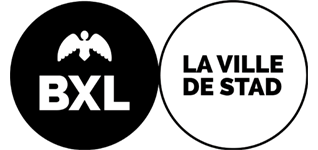City of Brussels

The City of Brussels adopted in 2019 an Energy-Climate Plan to reduce its direct and indirect CO2 emissions and achieve neutrality by 2030. To achieve this, it wants to reduce its carbon footprint by more than 40% (compared to 2005) and is supporting citizen’s initiatives. Actually, since 2020, Brussels is implementing a solidarity-based and socially-fair economic transition based on its regional strategy and the “Donut Theory“.
Housing: Temporary use and citizen-driven decarbonization as solutions to the city’s tensions
Today, the City of Brussels is expressing its vow to remain accessible to middle-class citizens but faces a lack of space. In the meantime, Brussels had and still have old industrial vacant buildings that face degradation and security problems. Therefore, The City of Brussels proposes to revitalize and reuse these empty spaces by renting them at a lower price to start-ups, to also foster the creation of local job. Therefore, Brussels is one of the first public institution to do a temporary use of buildings.
Also, the Brussels’ buildings are among the most energy-intensive in Europe. In order to decarbonize public and private buildings, the Region and the City have gathered various financial and building actors are rethinking their practices. Under the RENOLUTION project for example, these local actors are supporting owners and co-owners, professionals and individuals, in their renovation work. Among other things, the inittiative is offering an expert diagnosis and funding means.
For a neutral and circular economy in the long term
With its ambitious climate policy, Brussels is following several objectives. Since 2020, Brussels is implementing a solidarity-based and socially-fair economic transition based on the “Donut Theory” through multiple projects.
Moreover, the City’s recent Resource and Waste Management Plan targets a decrease of the volume of household and professional waste of 20% before 2030. To achieve this, schools will host prevention actions. Also, the waste collection and treatment policy will be remade to instead encourage sorting and reuse to promote a circular economy. Actually, Brussels plans to reduce the activity of the capital’s incinerator in the long term.
Finally, to develop responsible modes of transport, the Brussels-Capital Region called for citizen participation in 2016. The development process of the regional mobility plan 2020-2030, “Good Move” lasted 4 years. 8,500 people contributed. Finally, by 2030, diesel and gasoline will be banned and the City will have a fleet of zero emission vehicles.
Sources: official website of Environnement Brussels; official website of the DonutBrussels project; website of the Belgian entrepreneurship incubator ‘Impact House’ about the Donut Theory; official project website of RENOLUTION (in Dutch); official website of Brussels Mobility public service; “City of Brussels Integrated Action Plan” online PDF (p. 24 to p.29) on the URBACT programme – the European Territorial Cooperation programme – official website ;
 Belgium
Belgium